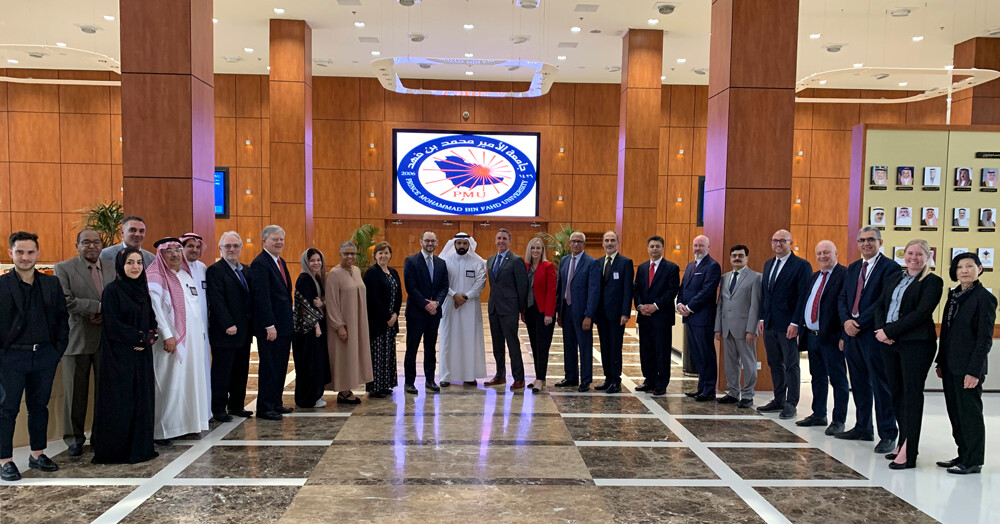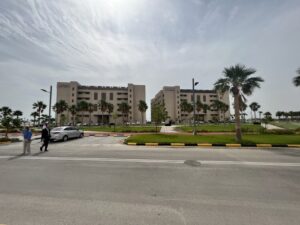
Designing a World-Class Teaching Hospital in Saudi Arabia
SSR recently entered a unique partnership with Texas International Education Consortium (TIEC), a non-profit higher education university consortium based in Austin, Texas. Contracted by TEIC, SSR is engaged to serve on the main steering committee for a new, world-class teaching hospital in Saudi Arabia. Colleagues Debbie Gregory and Zac Hillyard are the chair and co-chair for the Information Technology Working Group.
Debbie and Zac will work side by side with peers in Al Khobar, Saudia Arabia, to plan and develop every aspect of the new Prince Mohammad bin Fahd University (PMU) hospital. The new teaching hospital will offer the highest quality healthcare services for the local population, while simultaneously serving as a national and international destination for education, research, and healthcare for those who seek specialized medical education, treatment, and care. PMU hospital will deploy a focus on preventive medicine specifically identified to improve the quality of life and access to care by minimizing the need for treatment of avoidable diseases that are common to the area.
 PMU is an active university and the new teaching hospital is being built on the existing campus adjacent to current faculty housing. In addition to the hospital, the university is adding a medical school to train professionals for both the new hospital and other facilities in the region.
PMU is an active university and the new teaching hospital is being built on the existing campus adjacent to current faculty housing. In addition to the hospital, the university is adding a medical school to train professionals for both the new hospital and other facilities in the region.
TEIC is serving as project manager and assembled the project’s governing Steering Committee made up of leading U.S. subject matter experts and PMU-based higher education administrators. In their leadership roles of the Information Technology Working Group, Debbie and Zac are working closely with the CIO of the existing university to compile a strategic framework supported by monthly reports and a gap analysis.
Debbie and Zac’s role in the new hospital is unique in that SSR currently only provides consulting and advisory services; we are not working on design documents or specs. Instead, the pair will author a set of documents that will be used to run the internal PMU hospital IT department. Through numerous conversations with TEIC and the PMU staff, we know that they want to create a facility that is like top U.S.-based teaching institutions. To accomplish this, we’re working with their internal IT department on guiding principles and master planning, taking an in-depth look at equipment and procurement to ensure the facility is world-class. Some ideas we have proposed include ambient intelligence, smart patient room, and autonomous mobile robots (AMR).
“We are developing the framework for the ultimate connected healthcare facility,” said Debbie Gregory. “From the ground up, the entire project team has really embraced creating a smart building. We are setting up the framework for a connected building and ecosystem that is also patient centric and includes provisions for growth and later expansion.”
“I’m really excited for the opportunity to deploy automation in a smart facility,” said Zac Hillyard. “There are challenges with the geography and climate, we’re already looking at how to incorporate sustainability goals to address this. The region has some unique public health needs; we’re exploring innovative technologies to help address these needs.”
SSR is engaged through 2024 when the hospital is slated to move into construction. We hope that our engagement will be extended into construction so we can continue to provide guidance and oversight on the project. Until then, Debbie and Zac are looking forward to some upcoming trips to Saudia Arabia to meet with the entire project team and continue some research on how to best deliver solutions to the unique needs and challenges of the project.








